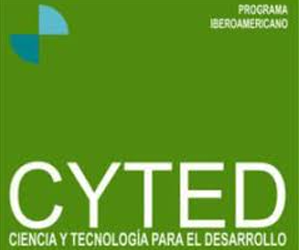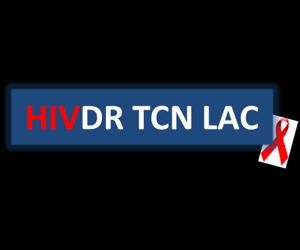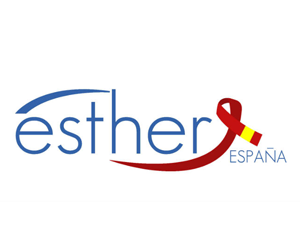INTERNATIONAL COOPERATION PROJECTS

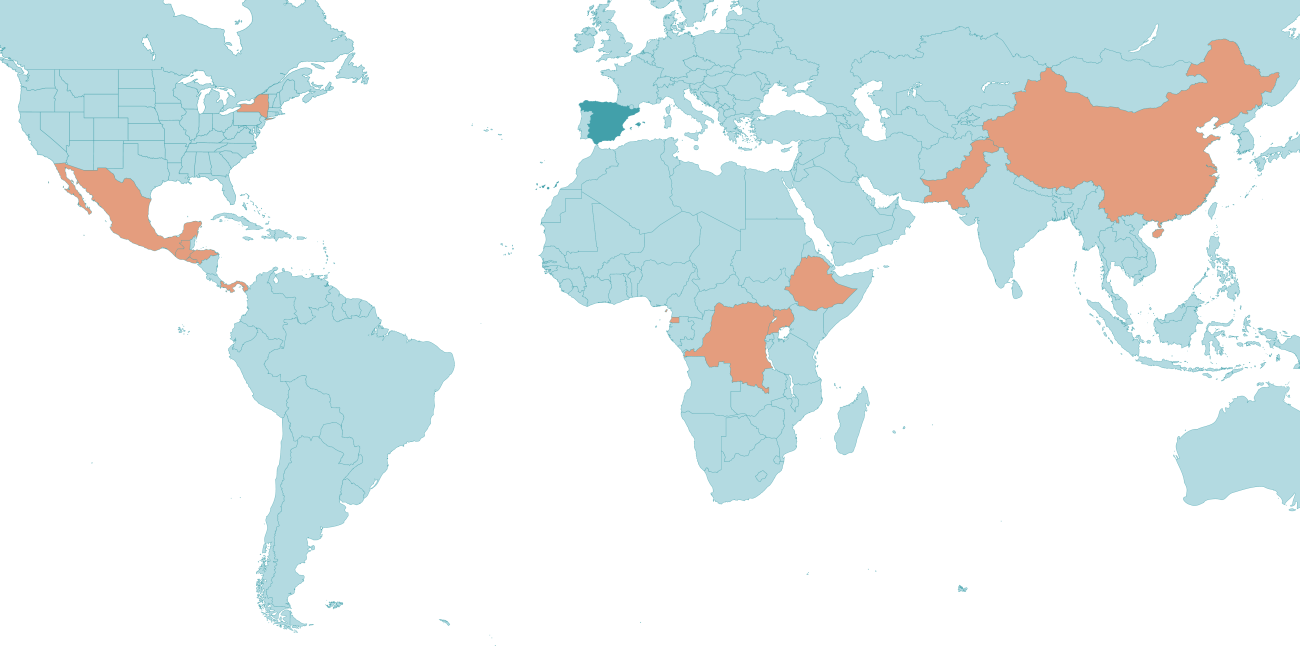
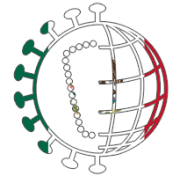
Immune impact of HIV exposure and infection in children.
Training of local medical personnel in interpreting resistance and susceptibility tests to antiretrovirals for patients with therapeutic failure..
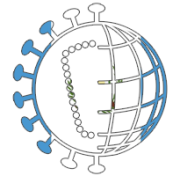
Surveillance of antiretroviral resistance against HIV in children and adolescents at Roosevelt Hospital, Guatemala.
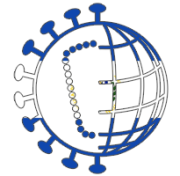
Study of primary HIV-1 resistance in El Salvador.
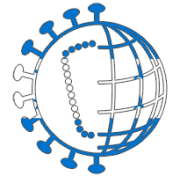
Viral variants and resistances in the pediatric population infected with HIV-1 at Dr. Mario Catarino Rivas Hospital in the city of San Pedro Sula.
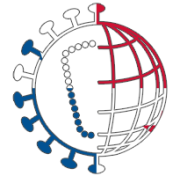
Surveillance of antiretroviral resistance and HIV variants in infected children and adolescents, both with and without antiretroviral treatment.
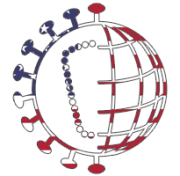
Study of the prevalence of resistance mutations to antiretroviral drugs and identification of non-B subtypes and recombinant forms of HIV-1 in clinical samples from the "Jacobi" pediatric cohort of children infected with HIV-1 in the city of New York.
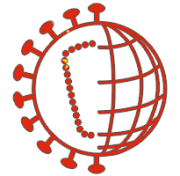
Study of amino acid conservation in the conserved regions (c1-c5) of gp120 and gp125 in HIV-1 and HIV-2 variants.
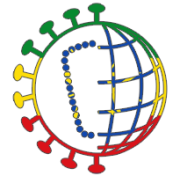
Training Course on HIV and Good Laboratory Practices at the Let Children Have Health Pediatric Clinic in Meki.
Collaboration in the development of diagnostic and therapeutic protocols for the HIV Unit at the Let Children Have Health Pediatric Clinic in Meki.
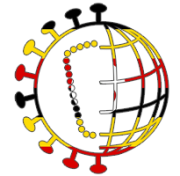
Sex differences in innate and adaptive immunity to malaria in children and adults from Kampala.
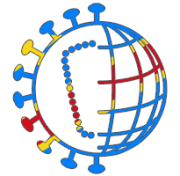
Early diagnosis, resistance analysis, and virological study of HIV in Kinshasa.
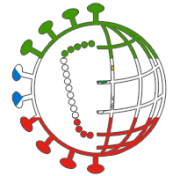
Early diagnosis of HIV-1 infection in children born to mothers living with HIV in Bata.
Surveillance of HIV resistance and variants in children and adults with and without treatment in Bata.
Training in serological and molecular techniques for laboratory technicians in Equatorial Guinea.
EQUATORIAL GUINEA
Early diagnosis of HIV-1 infection in children born to mothers living with HIV in Bata, Equatorial Guinea
During 2011-2017, EpiMolVIH, in collaboration with the National Center of Tropical Medicine-ISCIII and the Reference Center for Endemic Diseases Control and Damian Roku University Hospital, in Bata, developed this project partially funded by AECID and private donations from companies (24th Dodot Scholarship 2012) and individuals through the campaign Que Cumplan Muchos Más.
The primary aim of the study was to enhance healthcare for pediatric HIV patients in Equatorial Guinea by introducing molecular techniques and protocols for DBS sample collection (dried blood samples) to the healthcare staff at Bata Hospital. The project conducted the first early molecular diagnosis of HIV infection in newborns born to HIV-positive mothers at Bata Hospital, employing various molecular techniques not previously available in the country. This initiative aimed to identify infections promptly and accelerate treatment in children, thus improving their chances of survival and assessing the virus transmission rate to newborns. Additionally, the study evaluated the efficacy of several commercial techniques for the early molecular diagnosis of HIV infection in children under 18 months and for HIV quantification using DBS. This assessment included the rapid POC technique (Geenius HIV-1/2 Confirmatory tests BioRad) for swift serological confirmation of HIV.
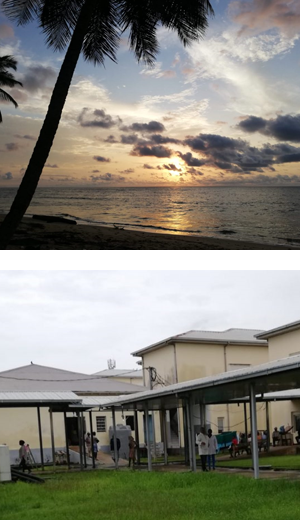
Surveillance of antiretroviral resistances and HIV variants in infected children and adults with and without antiretroviral treatment in Bata, Equatorial Guinea.

Since 2019 up to the present day, EpiMolVIH, in collaboration with the National Center of Tropical Medicine-ISCIII and with the support of the Guinean Ministry of Health, has been undertaking this project with the objective of analyzing HIV infection in Equatorial Guinea through an epidemiological, virological, and clinical study of its population. The aim is to understand the current limitations in the country and to optimize the diagnosis and monitoring of HIV infection in children, adolescents, and adults, identifying drug resistances in subjects both with and without antiretroviral treatment, and characterizing viral variants.
Through this project, HIV diagnoses will be confirmed using serological and molecular POC techniques in the infected pediatric population and in mothers. The stage of infection (recent and chronic) will be identified, and the rate of treated children experiencing therapeutic failure, as well as those who have experienced delays in starting therapy, will be quantified. Patients infected with drug-resistant viruses will also be identified to optimize the therapeutic rescue strategy for each case. Finally, the levels of antibodies against six vaccine-preventable pathogens will be quantified to determine the level of protection in the pediatric population, studying the levels of immune markers associated with infection in exposed and infected children.
Training in serological and molecular techniques for Guinean laboratory technicians.
In 2022, two Guinean laboratory technicians selected by the Ministry of Health of Equatorial Guinea underwent training in molecular techniques based on qPCR for HIV detection in clinical samples. The training also covered confirmatory serological diagnostic techniques, viral load quantification, and detection of antiretroviral resistance mutations.
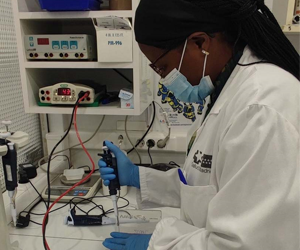
Results
Publications
2022 Rodríguez-Galet A, Bendomo V, Eyene M, Mikue-Owono T, Nzang J, Ncogo P, García B, Benito A y Holguín A. High Drug Resistance Levels Compromise the Control of HIV Infection in Pediatric and Adult Populations in Bata, Equatorial Guinea. 2022 Rodríguez-Galet A, Bendomo V, Eyene M, Mikue-Owono T, Nzang J, Ncogo P, García B, Benito A y Holguín A. Diagnostic delay, therapeutic failure and resistance in population with HIV in Equatorial Guinea (in review). 2017 Alvarez P, Martín L, Prieto L, Obiang J, Avedillo P, Vargas A, Rojo P, Fernández Mcphee C, Sanz Canalejas L, Benito A, Ramos JT and Holguín A. Evaluation of 4 virological tests using DBS for HIV-1 early infant diagnosis. 2016 Patricia Alvarez, Carolina Fernández McPhee, Leticia Martín, Luis Prieto, Jacinta Obiang, Pedro Avedillo, Antonio Vargas, Pablo Rojo, Agustín Benito, José Tomás Ramos and África Holguín. HIV-1 variants and drug resistance in pregnant women from Equatorial Guinea: 2012-13. 2016 Prieto-Tato LM, Vargas A, Álvarez P, Avedillo P, Nzi E, Abad C, Guillén S, Fernández-McPhee C, Ramos JT, Holguín Á, Rojo P, Obiang J. Diagnóstico precoz de la infección por el virus de la inmunodeficiencia humana-1 en niños: programa de prevención de la transmisión maternoinfantil en Guinea Ecuatorial. 2015 Alvarez P, Martín L, Prieto P, Obiang J, Vargas A, Avedillo P, Rojo P, Fernández McPhee C, Benito A, Ramos JT and Holguín A. HIV-1 variability and viral load technique could lead to false positive HIV-1 detection and to erroneous viral quantification in infected specimens. 2015 Fernández McPhee C, Álvarez P, Prieto L, Obiang J, Avedillo P, Vargas A, Rojo P, Abad C, Ramos JT and Holguín A. HIV-1 infection using Dried Blood Spots can be confirmed by Bio-Rad GeeniusTM HIV 1/2 Confirmatory Assay. 2013 Gonzalo Yebra, Miguel de Mulder, y África Holguín. Description of HIV-1 group M molecular epidemiology and drug resistance prevalence in Equatorial Guinea from migrants in Spain.
PhD thesis
2017 Patricia Álvarez Muñoz. Early diagnosis of HIV infection in children and monitoring of infection in the infected adult population using dried blood spot samples. Facultad de Ciencias de la Universidad Autónoma de Madrid.
Master's theses
2021 Judit Ventosa Cubillo. Study of HIV in a cohort of infected adults in Equatorial Guinea. Máster de Virología. Universidad Complutense de Madrid. 2016 Marina Rubio Garrido. Optimization of a new method for early molecular diagnosis of HIV in children under 18 months using two drops of blood. Master de Microbiología y Parasitología: Investigación y Desarrollo. Facultad de Farmacia de la Universidad Complutense de Madrid. 2013 Carolina Fernández McPhee. Diagnosis and virological analysis of HIV: viral load quantification, characterization of HIV-1 variants, and identification of antiretroviral drug resistance mutations in HIV-infected women in Equatorial Guinea. Master de Microbiología y Parasitología: Investigación y Desarrollo. Facultad de Farmacia de la Universidad Complutense de Madrid.
Undergraduate dissertations
2020 Judit Méndez Izquierdo. Study of HIV in a cohort of infected adults from Equatorial Guinea. Grado de Biología. Universidad de Alcalá de Henares. 2018 Miguel Gutiérrez López. Impact of genetic variability on the detection and characterization of HIV-1 variants in regions of high incidence and low resources. Grado de Biología. Universidad Autónoma de Madrid. 2011 Patricia Álvarez. Optimization of techniques for amplifying genetic material from the human immunodeficiency virus from dried blood samples collected on paper. Grado de Biología. Universidad Autónoma de Madrid.
Reports to the health authorities of Equatorial Guinea
2021 Report and presentation of updated data at the National Center for Tropical Medicine of the ISCIII in Madrid on our HIV research in Guinea to the Vice Minister of Health of Equatorial Guinea Mr. Mitoha Ondo, to the head of the National AIDS Plan of Equatorial Guinea Mrs. Leticia Ondo, to the Equatorial Guinean delegation of MINSABS, and to the Ambassador of the Republic of Equatorial Guinea in Madrid, Mr. Miguel Edjan. 2021 Presentation of updated data on our HIV research in Guinea to the WHO-AFRO (Mr. Casimir MANZENGO MINGIEDI), and to WHO consultants of the global HIV drug resistance program (Mrs. Amalia Carolina Girón). 2018 Presentation of the first report delivered to the authorities of the National Plan for Fighting AIDS (PNLS) of Equatorial Guinea on antiretroviral resistance, early infant diagnosis in the country, and studies of circulating viruses in Guinea. Transfer of research results from the group on samples from the country. 2018 Advisory on the choice of possible actions against HIV/AIDS in the 2019 Action Plan in Equatorial Guinea at the first Conference on National Programs for Disease Control in Equatorial Guinea. held on December 10-12, 2018, at the National Center for Tropical Medicine and the National School of Health in Madrid. 2011-present Periodic transfer of real-time results to local clinicians responsible for monitoring HIV patients in Equatorial Guinea and to local Guinean technical staff involved in the projects.
DEMOCRATIC REPUBLIC OF THE CONGO
Early diagnosis, resistance analysis, and virological study of HIV in Kinshasa
During 2016-2020, EpiMolVIH carried out this project, in collaboration with the Hospital de Monkole and Kalembelembe (Kinshasa, R. D. Congo), the University of Navarra Clinic, for the analysis of samples from infected adults in Kinshasa and the Biomedical Research Institute of La Paz Hospital (IdiPaz) for the analysis of inflammation markers.
The main objectives of the project were the analysis of resistances to antiretrovirals and variants of HIV-1 in pediatric and adult patients in Kinshasa, Democratic Republic of the Congo (DRC), and the evaluation of the performance of virological assays for early diagnosis in infants and viral load quantification in the study cohort. For this purpose, technical staff training was conducted at the Hospital de Monkole for proper sample collection and transportation at -20ºC from DRC of children to Madrid. Early HIV diagnosis was carried out in children born to mothers infected with the virus in DBS samples (dried blood spots), analyzing viral load in all infected children, identifying antiretroviral drug resistances, and detecting treatment failures. Various molecular techniques were also evaluated for the monitoring of infection and to quantify circulating viral variants in DRC. Finally, a study of inflammation markers and vaccine markers was conducted using DBS (dried blood spots).
With the generated data, we carried out an epidemiological and variant description in the pediatric, adolescent, and adult population since the beginning of the epidemic in DRC. Result reports were generated for local clinical staff to allow the optimization of HIV patient diagnosis, therapeutic regimen, and clinical follow-up. The use of DBS for detecting other viruses such as Hepatitis C was also studied.
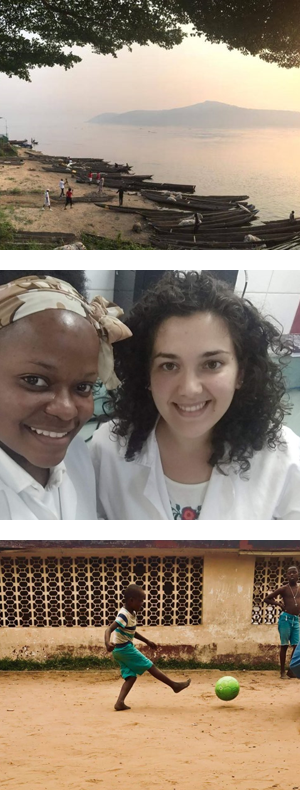
Results
Publications
2022 Rodríguez-Galet A, Rubio-Garrido M, Valadés-Alcaraz A, Rodríguez-Domínguez M, Galán J C, Ndarabu A, Reina G, Holguín A. Immune surveillance for six vaccinable pathogens using paired plasma and dried blood spots in HIV infected and uninfected children in Kinshasa 2021 Rubio-Garrido M, Avendaño Ortiz J, Ndarabu A, Rubio C, Reina G, López-Collazo E, Holguín A. Dried Blood Specimens as alternative specimen for immune response monitoring during HIV infection: a proof of concept and simple method in a paediatric cohort. 2021 Rubio-Garrido M, Reina G, Ndarabu A, Rodriguez-Galet A, Valadés-Alcaraz A, Barquín D, Carlos S, Holguín Á. High drug resistance levels could compromise the control of HIV infection in paediatric and adolescent population in Kinshasa, the Democratic Republic of Congo. 2021 Barquín D, Ndarabu A, Carlos S, Fernández-Alonso M, Rubio-Garrido M, Makonda B, Holguín A, Reina G. HIV-1 diagnosis using dried blood spots from patients in Kinshasa, DRC: a tool to detect misdiagnosis and achieve World Health Organization 2030 targets. 2021 Carrasco T, Barquín D, Ndarabu A, Fernández-Alonso M, Rubio-Garrido M, Carlos S, Makonda B, Holguín A, Reina G. HCV diagnosis and sequencing using dried blood spots from patients in Kinshasa (DRC). A tool to achieve WHO 2030 targets. 2020 Rubio-Garrido M, González-Alba, J M, Reina G, Ndarabu A, Barquín D, Carlos S, Galán JC, Holguín A. Current and historic HIV-1 molecular epidemiology in paediatric and adult population from Kinshasa in the Democratic Republic of Congo.
PhD thesis
2021 Marina Rubio Garrido. Virological characterization, HIV monitoring, and analysis of immune markers in dried blood samples from pediatric and adult populations in Kinshasa, Democratic Republic of the Congo. Facultad de Ciencias de la Universidad Autónoma de Madrid.
UGANDA
Sex differences in innate and adaptive immunity to malaria in children and adults from Kampala.
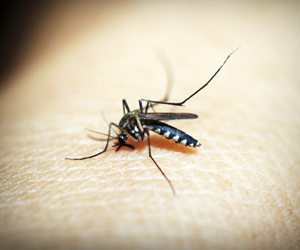
Since 2022, EpiMolVIH, in collaboration with Thomas Egwang from Med Biotech Laboratories, Kampala, Uganda, and Mr. Moses Adriko from the National NTD Program, Ministry of Health, Kampala, Uganda, is carrying out this project funded by Fundrising and SEPLA AYUDA Foundation.
The main objective of this project is to assess the gender impact on innate and adaptive immunity to malaria in children and adults in a malaria-endemic region with a high HIV burden located in Kampala (Uganda).
ETHIOPIA
HIV Training Course and Good Laboratory Practices and collaboration in the development of
diagnostic and therapeutic protocols for the HIV Unit at Let Children Have Health Pediatric Clinic in Meki.
In 2019, the Pablo Horstmann Foundation organized and conducted a comprehensive training course, facilitating essential knowledge transfer to the medical and technical staff at the Meki center. This training aimed to equip them with the necessary skills and expertise to establish and operate the HIV and Maternal Care Unit effectively.
Dr. Holguín led various informative sessions during the course, covering topics such as HIV infection, the HIV virus genome, structural aspects, and the viral cycle. Additionally, discussions on the WHO's 90:90:90 goals for the HIV epidemic in Africa and Ethiopia, early HIV diagnosis in infants, HIV monitoring techniques, viral load quantification, and resistance to antiretroviral drugs were conducted. Practical demonstrations and insights into point-of-care (POC) diagnostic techniques, including the Cepheid Xpert HIV POC system, were provided. Biosafety protocols, adherence to good clinical practices, and the operational dynamics of HIV laboratory settings were also emphasized. Dr. Holguín further shared her expertise in HIV research focusing on the pediatric population infected with HIV, based on her experiences at the EpimolVIH-Irycis laboratory at Ramón y Cajal Hospital in Madrid, Spain.
Moreover, Dr. Holguín actively contributed to the development of diagnostic and therapeutic protocols for the HIV Unit at the Clinic. Serving as a consultant, she played a pivotal role in expanding the laboratory infrastructure and overseeing the procurement process for essential equipment, notably the GenXpert system by Cepheid.
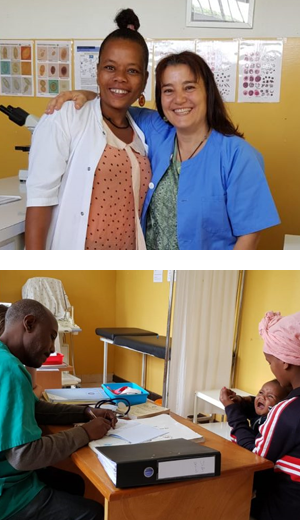
EL SALVADOR
Study of primary HIV-1 resistances in El Salvador.

This project, conducted between 2011-2012, was endorsed by the Ministry of Public Health and Social Assistance and Global Fund/MSPAS RCC: HIV/AIDS combat strategy in vulnerable populations as a complement to poverty reduction in El Salvador 2009-2014.
This study represents the first description of the prevalence of resistance mutations to various families of antiretroviral drugs in adults infected with HIV in El Salvador before receiving their first antiretroviral therapy. Such studies prevent therapeutic failure due to drug resistance and allow for the generation of a resistance profile for the country to optimize HIV treatment regimens.
Results
Publications
2013 Holguín Á, Yebra G, Martín L, de Pineda AT, Ruiz LE, Quezada AY, Nieto AI, Escobar G.Transmitted drug-resistance in human immunodeficiency virus-infected adult population in El Salvador, Central America.
2011Holguín A, Erazo K, Escobar G, de Mulder M, Yebra G, Martín L, Jovel LE, Castaneda L, Pérez E; Proyecto Esther. Drug resistance prevalence in human immunodeficiency virus type 1 infected pediatric populations in Honduras and El Salvador during 1989-2009.
Technology transfer
2011 Training of two technical graduates selected by the national program for STIs/HIV/AIDS of the Ministry of Health of El Salvador and technology transfer for the implementation of detection of antiretroviral resistances in El Salvador using DBS or dried blood samples following WHO guidelines. 2011 Technical support in the implementation of the first national laboratory for the identification of antiretroviral resistances in El Salvador following WHO guidelines and with support from the Global Fund. Advisory on different methods of genotyping resistance, both commercial and non-commercial (Abbott and Siemens vs. WHO method). Visiting personnel: Lisseth Esmeralda Ruiz (licensed and national supervisor of clinical laboratory of the National STIs/HIV/AIDS Program and coordinator of mobile units STIs/HIV/AIDS of the National Program of El Salvador) and Luis Enrique Morataya (technical licensee of the Epidemiological Surveillance Laboratory, Ministry of Health, El Salvador).
HONDURAS
Viral variants and resistances in the pediatric population infected with HIV-1 at Dr. Mario Catarino Rivas Hospital
in the City of San Pedro Sula.
During 2011-2012, EpiMolVIH conducted this project supported by the Spanish National AIDS Plan within the framework of the Esther Project (Union for Hospital Therapeutic Solidarity Network) and the Spanish Agency for International Cooperation.
This study identified HIV variants, antiretroviral-resistant viruses, and mutations to each family of antiviral drugs in children living with HIV in Honduras, both those who had never received therapy and those experiencing therapeutic failure.
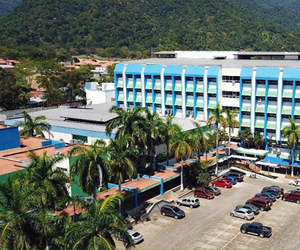
Results
Publications
2011 Holguín A, Erazo K, Escobar G, de Mulder M, Yebra G, Martín L, Jovel LE, Castaneda L, Pérez E; Proyecto Esther. Drug resistance prevalence in human immunodeficiency virus type 1 infected pediatric populations in Honduras and El Salvador during 1989-2009.
USA
Study of the prevalence of antiretroviral drug resistance mutations and identification of non-B subtypes and recombinant
forms of HIV-1 in clinical samples from the pediatric cohort "Jacobi" of HIV-1-infected children from the city of New York.
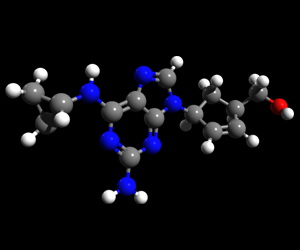
Between 2011-2012, EpiMolVIH conducted this project in collaboration with the Jacobi Medical Center (New York, USA), through a sample-sharing agreement of blood samples from pediatric HIV-1 patients with Dr. Nixon's laboratory at the Division of Experimental Medicine-University of California (San Francisco, USA).
The main objective of this study was to identify antiretroviral drug resistance mutations in a pediatric cohort infected with HIV-1. Additionally, the utility of DBS or dried blood spots for detecting resistance mutations was assessed. The study resulted in a high prevalence of viruses resistant to the family of nucleoside reverse transcriptase inhibitors (NRTIs).
Results
Publications
2014 de Mulder M, York VA, Wiznia AA, Michaud HA, Nixon DF, Holguin A, Rosenberg MG. HIV-1 drug resistance prevalence, drug susceptibility and variant characterization in the Jacobi Medical Center paediatric cohort, Bronx, NY, USA.
PANAMA
Monitoring of antiretroviral resistance and HIV variants in infected children and adolescents, with and without antiretroviral treatment, in Panama.
Between 2020-2022, EpiMolVIH, in collaboration with Dr. José Renán Esquivel Children's Hospital and CYTED-PLANTAIDS (Pediatric Network for Prevention, Early Detection, and Treatment of HIV in Children), carried out this project funded by CYTED-PLANTAIDS.
The project analyzed the epidemiological situation of the pediatric and adolescent population living with HIV in Panama, detecting therapeutic failures and delays, antiretroviral drug resistances against HIV, and viral variants in this group. The study has had a direct clinical impact on children, who have benefited from ART changes based on resistance studies. It has also allowed knowledge and technology transfer to the Panamanian Health System by providing practical training for antiretroviral resistance detection to a laboratory technician from the Children's Hospital.
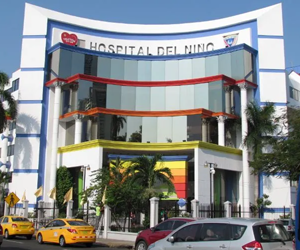
Results
Publications
2022 Judit Ventosa-Cubillo, Ramón Pinzón, José María González-Alba, Dora Estripeaut, María Luisa Navarro y África Holguín. Drug resistance in children and adolescents with HIV in Panama.
MEXICO
Impact of HIV exposure and infection on the immune system in children from Mexico, and training of local medical staff in interpreting resistance and susceptibility tests to antiretrovirals for patients experiencing therapeutic failure.
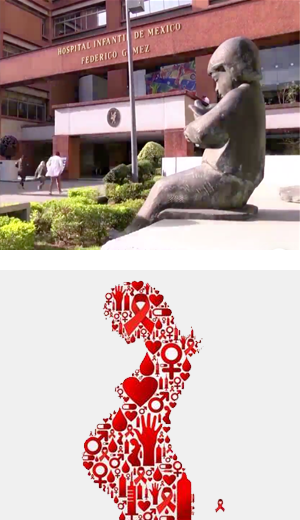
Since 2022, EpiMolVIH, in collaboration with the Federico Gómez Children's Hospital (Mexico), and CYTED-PLANTAIDS (Pediatric Network for Prevention, Early Detection, and Treatment of HIV in Children), has been conducting this project funded by CYTED-PLANTAIDS, SEPLA-AYUDA, and the Fundación para la Investigacion Biomedica HGUGM (project 2021-II-PI-COOP-01).
The general objective of this project is to study the immune impact of HIV exposure in children from Mexico. Programs for the prevention of mother-to-child transmission of HIV do not reduce the number of infants exposed during pregnancy and breastfeeding. Children exposed to HIV but not infected are at higher risk of morbidity and mortality than those not exposed. This project will provide pioneering data on the impact of HIV exposure in the pediatric population based on the expression of 27 immune markers and will train Mexican clinical staff in interpreting genotypes of antiretroviral resistance, allowing for the optimization of rescue antiretroviral therapies in patients with therapeutic failure to improve infection control in Mexico and other Latin American countries within the CYTED-PLANTAIDS network, and reduce the circulation and transmission of resistant HIV strains.
GUATEMALA
Surveillance of antiretroviral resistance against HIV in children and adolescents infected and under follow-up at Roosevelt Hospital.
Between 2023-2024, EpiMolVIH, in collaboration with Roosevelt Hospital (Guatemala) and CYTED-PLANTAIDS (Pediatric Network for Prevention, Early Detection, and Treatment of HIV in Children), is conducting this project funded by CYTED-PLANTAIDS, SEPLA-AID, and donations from the Firefighters Association Helps.
The main objective of the project is the epidemiological study of the pediatric cohort infected with HIV at Roosevelt Hospital, analyzing both transmitted and acquired resistances to antiretroviral drugs, as well as the circulating viral variants in the study population.
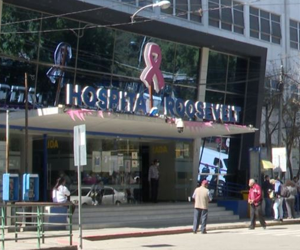
CHINA AND PAKISTAN
Study of amino acid conservation in the conserved regions (c1-c5) of gp120 and gp125 in HIV-1 and HIV-2 variants.
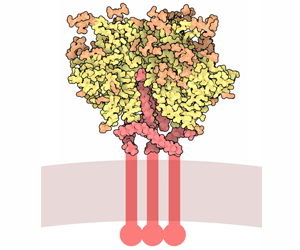
Since 2023, a collaboration led by Dr. Holguín and Roberto Reinosa from EpiMolVIH is underway with Prof. Dr. Yiming Shao, Division of Virology and Immunology at the National Center for AIDS/STD Control and Prevention (NCAIDS), Chinese Center for Disease Control and Prevention (China-CDC), Prof. Dr. Syed Hani Abidi, Department of Biological and Biomedical Sciences, Aga Khan University, Karachi, Pakistan, and Mr. Abdur Rashid, School of Medicine, Nankai University, Tianjin 300071, China, and China-CDC.
The project involves the study of conserved regions of the envelope protein of HIV-1: gp120 and HIV-2: gp125. Conservation studies help detect regions with few mutations within the virus, which can aid in the design of new diagnostic, therapeutic, and vaccine techniques, as well as in viral evolution analysis.
Participation in the PLANTAIDS Network of the CYTED Program: Pediatric Network for Prevention, Early Detection, and Treatment of HIV in Children
Since 2018, EpiMolVIH has been part of this network, which includes 9 countries in Latin America: Costa Rica, Ecuador, El Salvador, Guatemala, Honduras, Mexico, Nicaragua, Panama, and Venezuela. The mission of this network is to improve the prevention, early detection, and treatment of pediatric HIV in Latin America. The network collaborates with the National Pediatric HIV Network (CoRISpe) in Spain. It is also supported by the French Institute INSERM, the Italian-Latin American Institute ILLA, and the Spanish National AIDS Plan. Additionally, it collaborates with the PENTA Network. Our laboratory has participated in training on antiretroviral resistance and in updating the situation of resistant virus infection in children and adolescents in Africa and Latin America for Latin American pediatricians representing the different countries in the PLANTAIDS Network and responsible for the clinical follow-up of children with HIV in the network countries.
Membership in the International HIVDR TCN LAC Network
Since 2013, Dr. Holguín has been the only Spanish member of the Laboratory Group of the Technical Cooperation Network on HIV Drug Resistance in Latin America and the Caribbean (HIVDR Technical Cooperation Network for Latin America and The Caribbean, HIVDR TCN LAC), coordinated by the Pan American Health Organization (PAHO) and supported by AIDS Programs and Governments of Latin America and the Caribbean. This working group's mission is to support the implementation of HIV drug resistance surveillance and the strategic use of data for policies and public health actions in Latin America and the Caribbean.
HIV Training for Latin American Clinicians with the Online Master's Program "Human Immunodeficiency Virus Infection"
Since 2008, Dr. África Holguín has participated in 14 editions of the Online Master's Program "Human Immunodeficiency Virus Infection," organized by the Ministry of Health, Social Services and Equality and the Rey Juan Carlos University, Madrid. It is part of the Esther-Spain project organized and coordinated by the National AIDS Plan for the technical training of HIV-1 infection professionals from Latin America and Spain. Dr. África Holguín teaches the chapters on HIV Virology, HIV Diagnosis, and Molecular Epidemiology of HIV and has supervised 11 master's theses.

